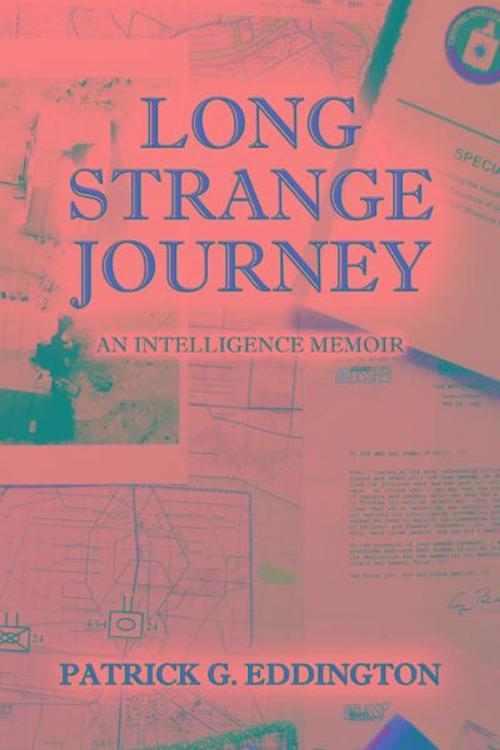| Author: | Patrick G. Eddington | ISBN: | 9781609844646 |
| Publisher: | BookBaby | Publication: | January 17, 2011 |
| Imprint: | Language: | English |
| Author: | Patrick G. Eddington |
| ISBN: | 9781609844646 |
| Publisher: | BookBaby |
| Publication: | January 17, 2011 |
| Imprint: | |
| Language: | English |
Long Strange Journey is a first-person account of the high-tech, space-based side of the intelligence business. Although President Carter first revealed the existence of our imagery spy satellites nearly 30 years ago, no analyst who has used those systems has written a book on the topic and got it past CIA censors until now. Eddington’s tenure at the CIA spanned the transition from the Cold War to the new era of American interventionism in the Persian Gulf and the Balkans. The book draws upon his direct experience reporting on these events for senior government policy makers, as well as thousands of pages of previously classified documents secured through litigation Eddinton pursued during the last decade. Readers of Long Strange Journey will learn: • That the CIA’s much-publicized failure to accurately characterize Iraq’s chemical warfare capabilities actually goes back decades and spans three wars. • That Saddam’s intent to invade Saudi Arabia was real and was only averted by President George H.W. Bush’s dispatch of American troops to the desert kingdom, contrary to what Tim Weiner has claimed in his recent book, Legacy of Ashes. • How Saddam Hussein’s forces trained for the invasion of Kuwait, how that activity was missed or misinterpreted by the American intelligence community in the year before the attack, and how U.S. intelligence sharing with Iraq may have given Saddam the confidence that he could redeploy forces off his border with his arch enemy Iran and send additional Iraqi forces south to occupy Kuwait. • How, from July 20, 1990 onward, the first Bush administration ignored compelling evidence of Saddam’s intent to invade Kuwait, despite the overwhelming satellite imagery-derived reporting of the Iraqi military build up on the Iraq-Kuwait border. • That the federal government deliberately attempted to suppress evidence of chemical exposures among Desert Storm veterans. • How the growing Soviet military response to internal unrest in the late 1980’s was tracked by the intelligence community. • How the CIA’s post-Desert Storm tilt towards deepening its support to Pentagon operations compromised the Agency’s independence, and the role the CIA played in supporting Pentagon operations in Haiti and the Balkans. • Why real intelligence reform is more urgently needed than ever.
Long Strange Journey is a first-person account of the high-tech, space-based side of the intelligence business. Although President Carter first revealed the existence of our imagery spy satellites nearly 30 years ago, no analyst who has used those systems has written a book on the topic and got it past CIA censors until now. Eddington’s tenure at the CIA spanned the transition from the Cold War to the new era of American interventionism in the Persian Gulf and the Balkans. The book draws upon his direct experience reporting on these events for senior government policy makers, as well as thousands of pages of previously classified documents secured through litigation Eddinton pursued during the last decade. Readers of Long Strange Journey will learn: • That the CIA’s much-publicized failure to accurately characterize Iraq’s chemical warfare capabilities actually goes back decades and spans three wars. • That Saddam’s intent to invade Saudi Arabia was real and was only averted by President George H.W. Bush’s dispatch of American troops to the desert kingdom, contrary to what Tim Weiner has claimed in his recent book, Legacy of Ashes. • How Saddam Hussein’s forces trained for the invasion of Kuwait, how that activity was missed or misinterpreted by the American intelligence community in the year before the attack, and how U.S. intelligence sharing with Iraq may have given Saddam the confidence that he could redeploy forces off his border with his arch enemy Iran and send additional Iraqi forces south to occupy Kuwait. • How, from July 20, 1990 onward, the first Bush administration ignored compelling evidence of Saddam’s intent to invade Kuwait, despite the overwhelming satellite imagery-derived reporting of the Iraqi military build up on the Iraq-Kuwait border. • That the federal government deliberately attempted to suppress evidence of chemical exposures among Desert Storm veterans. • How the growing Soviet military response to internal unrest in the late 1980’s was tracked by the intelligence community. • How the CIA’s post-Desert Storm tilt towards deepening its support to Pentagon operations compromised the Agency’s independence, and the role the CIA played in supporting Pentagon operations in Haiti and the Balkans. • Why real intelligence reform is more urgently needed than ever.















